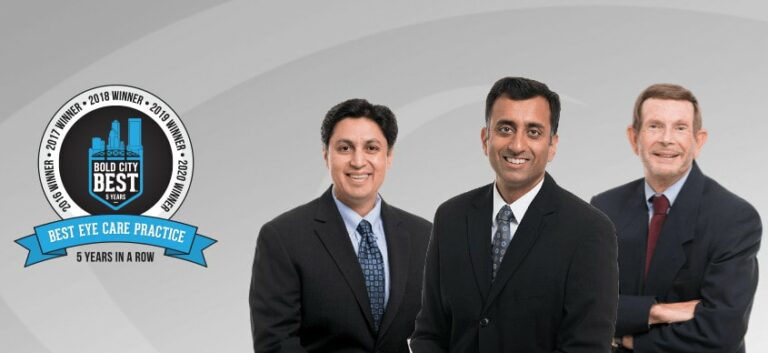Does LASIK Hurt?
Most patients experience little or no discomfort because the procedure begins when the cornea is numbed with anesthesia. Some patients feel grittiness in their eyes after the procedure, others do not. Following LASIK, patients are asked to go home and take a nap, then take Tylenol or Advil if they continue to feel discomfort.
When Will I Be Able to See?
You will probably notice improvement immediately following the procedure. The full effects of the surgery may take about three weeks to manifest.
When Can I Return to Work, Drive and to My Normal Activities?
You may resume most of your normal activities (walking, working, driving) the day after the procedure. Women should refrain from wearing eye makeup for three days. Avoid contact sports and swimming for two weeks.
What Laser Vision Correction Procedure Is Best For Me?
This varies, depending on your personal health, the condition of your eyes and so on. Consult with our Jacksonville LASIK surgeons to discuss your treatment plan and options.
Will I Need to Wear Glasses After?
Most likely not. Patients who are over 40 and who do not elect to get MonoVision LASIK may eventually need reading glasses because of a condition called presbyopia.
What if My Eye Moves During the Treatment or I Blink?
During your LASIK procedure, you will not be able to blink because a device will hold your eyelids open. At Florida Eye Specialists, we use an Advanced Control Eye Tracker (ACE) to track the movements of your eye. This device helps ensure better outcomes, especially if you suffer from astigmatism. Florida Eye Specialists are the only office in Jacksonville, FL with an ACE, so we can offer the best chance of success in the city.
What Are The Risks Associated with LASIK?
LASIK is very safe. While there is always the risk of complication, the risks are relatively low. Candidates who have been properly evaluated before treatment are unlikely to experience problems. The most common effects people experience following LASIK surgery is dry eye that lasts for several months, and occasionally a patient will report dry eye that lasts over a year.
Additionally, under correction or over correction can occur, and about 1-2% of patients require a touch up. People who are very nearsighted run a greater risk this will occur.
Finally, infection affects one in 4,000 or 5,000 patients. Although this problem is very rare, if it does occur, you’ll want a surgeon who has background and experience to manage the problem and treat it effectively. At Florida Eye Specialists, Dr. Hasan is an experienced professional who has served in his position as the director of the Laser Vision Correction program at Florida’s Mayo Clinic for 10 years. There, Dr. Hasan has been consulted numerous times on cases wherein patients suffered from complications.
Dr. Amit Chokshi, also from Florida Eye Specialists, is a graduate of the University of Miami’s Miller School of Medicine. From 2015 to 2016, he served as the Chief of Ophthalmology at Baptist Medical Center. Both our doctors are more than able to handle complications as they arise.
Are There Any Alternatives to LASIK?
PRK (also called LASEK treatment) can be just as effective as LASIK. These procedures are less invasive but can be more uncomfortable. These procedures are better for patients who have thin corneas, corneal dystrophies and dry eyes.
Can I afford LASIK?
At Florida Eye Specialists, we take pride in offering our patients the most advanced technology, educated and experienced staff, and the highest quality patient care, all at an affordable price. We offer several payment plans to help make LASIK affordable for just about any budget. Approval is fast and easy. If you have an FSA (flexible spending account) you may use this as a pre-tax way to save on LASIK.

